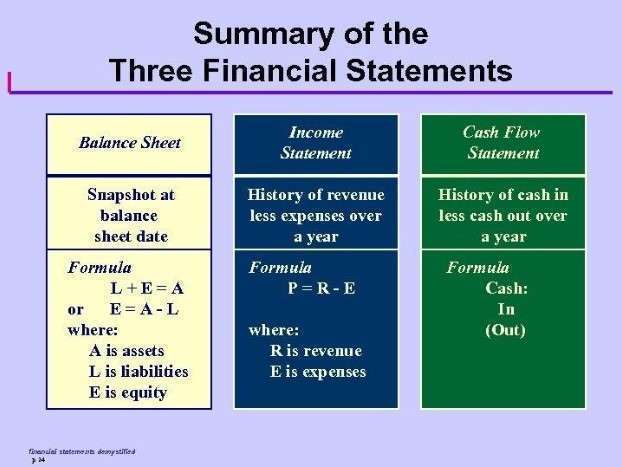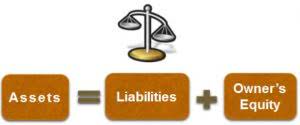
However, annual accountancy is an important part of a lawyer’s duty to keep clients advised of the account. Three-way reconciliation is one of the safest ways to ensure that trust accounts are accurate, complete, and compliant. Trust accounting is crucial for lawyers and their firms because it keeps funds separate. The American Bar Association also has the Model Rules for Lawyers’ Fund for Client Protection, which, while not perfect, attempts to create a higher standard of ethics for lawyers. A depleted retainer that catches a law firm by surprise can lead to a real hassle. For example, if a law firm uses two separate systems for billing and accounting and then fails to track WIPs accurately, a retainer can deplete without the bookkeeping team being aware of it.

Ultimate Email Marketing for Law Firms in 2024
The flat fee should be held in trust until the services have been provided and the client approves the work. The legal professional should immediately move the funds from the client’s trust account to the operating account. Trust accounting is a fundamental aspect of legal practice that ensures clients’ funds are managed with the utmost integrity and transparency.
- This program will benefit any attorneys in private practice, especially solo practitioners, and small firm attorneys.
- For example, a deposit entry should include the client’s name, the date, the amount of the deposit, and the reason for the deposit.
- MyCase helps streamline case management and billing processes, making it easier to keep track of client funds and maintain accurate records.
- For lawyers, maintaining accurate and compliant trust accounts is not just a regulatory requirement but also a critical component of ethical practice.
- While your legal practice management software keeps the daily work of a law firm moving, legal CRM software makes it easier to bring in new clients, engage current clients, and increase your profits.
Common Trust Account Rules Lawyers Overlook
All amounts not in dispute should be immediately moved to the firm’s/proprietor’s operating account. Additionally, any advanced fees submitted to the firm/proprietor should be placed in a client trust account until such funds are earned. When a legal professional’s client is entitled to receive money or property that is being held for them, a legal professional has a duty to promptly deliver it. Additionally, if a settlement is received on behalf of a client, the legal professional must promptly communicate receipt of such settlement to the client. A firm/proprietor should not use any settlement funds to pay outstanding firm/proprietor invoices until the client is billed.
Experienced Lawyer: Navigating Legal Challenges with Expertise
Moreover, maintaining open communication with clients regarding Law Firm Accounts Receivable Management the handling of their funds can foster transparency and trust. Providing clients with regular updates on their trust account balances and transactions can help alleviate any concerns and demonstrate a commitment to ethical conduct. By implementing these best practices, lawyers can mitigate the risk of violating trust account rules and uphold the highest standards of integrity in managing client funds.

Technology and Trust Accounting
When handled properly, this clean separation of funds ensures that you maintain ethical behaviors and reduces trust accounting for lawyers the possibility of legal troubles. But – by adhering to certain principles – you can protect client funds while also upholding the highest standards of professional conduct. In today’s fast-paced legal environment, embracing technology, particularly trust accounting software like RunSensible, is not just an option but a necessity. These tools offer unparalleled support in ensuring compliance with State Bar Regulations (American/Canadian), simplifying account management, and fostering transparency and trust with clients.
Step 1: Hold Fast to Your State’s Bar Association Rules
Being in the legal field for over a decade, trust accounting has rarely been a focus of continuing education, yet it is a vital part of the attorney-client relationship. These funds are placed in a single, pooled, interest-bearing trust account that raise money for charitable purposes, primarily the provision of civil legal services to indigent persons. IOLTA rules are dictated by the American Bar Association (ABA) but may also have specific requirements by state. Trust account violations sometimes stem from a failure to maintain trust account records in compliance with bar rules.

Discover how our legal case management software can transform your practice, ensuring you remain compliant, efficient, and ahead of the curve. Laws and regulations governing trust accounting for lawyers can evolve, making continuous education and staying abreast of legal updates crucial for compliance. Many state bars offer resources, training, and updates to help lawyers maintain their understanding of trust accounting requirements. Beyond the technical aspects of trust accounting, ethical considerations play a critical role. This includes promptly notifying clients upon receiving or disbursing their funds, obtaining proper authorization for withdrawals, and never using client funds for the operation of the law firm or for personal purposes. Managing an IOLTA account requires understanding specific regulations and guidelines, which vary by state.

Bar to provide free trust accounting software beginning in September – The Florida Bar
- Using legal-specific accounting software not only enhances accuracy and efficiency but also helps ensure compliance with state bar regulations, making it a wise investment for any law firm committed to upholding the highest standards of practice.
- Key learnings from this presentation will help provide you with the tools you need to avoid committing accidental violations.
- These mistakes are serious violations that can lead to possible disbarment and legal penalties.
- Mismanagement of trust funds, whether through negligence or intent, breaches this trust and undermines the very foundation of legal practice.
- For more information on client trust accounting and CTAPP visit the State Bar of California “Client Trust Accounting & IOLTA”.
Keeping funds separate can be complicated when banks and credit card processors are involved. However, software can help you keep everything on track, create sub-accounts for clients and avoid mishandling funds. The trust ledger is an internal record of all incoming trust accounting for lawyers and outgoing transactions of the client’s trust account. We’re going to dive into trust accounting in greater detail and best practices that lawyers can follow to adhere to the highest ethics possible.




